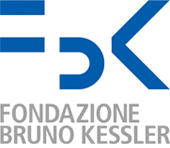What we did in the project
FBK conducted nine in-depth interviews with PhD students, five males (four ICT and one CMM) and four females (three ICT and one CMM). Individual interviews were scheduled in the period July-September 2014. They focused on the major problems that PhD students met during the doctoral program with a specific focus on supervision. We used these findings to motivate the activities with the advisors’ study group.
From November 2014 until April 2015, we conducted three study circles with nine supervisors: six man (three for CMM and three for ICT) and three women (two for ICT and one for CMM. The activities were carried out in two-hour meeting sessions, consisted in specialized readings and discussion of these articles.
During the study circles, the supervisors shared personal experiences about supervision and these meetings created an opportunity for reflection and learning.
The need to create guidelines for new supervisors was discussed as well.
In collaboration with the HR office, we have organized three focus groups (March – April 2016) which will be composed of different advisors from those who participated in the study circles. These meetings are designed to raise awareness on the practice of supervision in all FBK research unit personnel.
What we learned in the project
Participation in the WP6.2 has been helpful to reflect on what would be the best way to supervise PhD students. Supervision is an activity that is too often taken for granted, carried out on a “self-taught” basis, without provision of the necessary tools to understand how this should be profitably done.
Thus, I now understand that education on this topic is needed and tools should be given (especially for those at the beginning of this activity) to understand how to interact with new students (considering both gender and cultural diversity), what are the essential steps to follow and how to help the students grow professionally. Therefore, it has been useful to reflect on these issues, which does not always happens, but that would need to be considered more often.
I’ve learned from the others FESTA partners that supervision is very different in different organizational contexts. The heterogeneity of the people involved in the FESTA team and the different backgrounds of the other partners of the project was useful to broaden my perspective and learn from different viewpoints. Moreover I have understood the necessity to implement strategies to ensure that supervision become a training not only unidirectional (supervisors training PhD students) but bidirectional (supervisors that train PhD students but also learn from them how to relate and how to give greater professional and personal support).
Scientific and Technological Hub
Via Sommarive, 18
38123 Povo (TN)
Italia
Tel. +39 0461 314 444
Representatives
Andrea Simoni
Secretary-General
Alessandro Dalla Torre
Head of Human Resources
Ornella Mich
ITC senior researcher
Anna Perini
ITC senior researcher
Lorenza Ferrario
CMM senior researcher
General Information
Total staff (31.12.2014): 510 (33,53% women)
Research staff: 386 (24,61% women)
Tech/adm staff: 124 (61,29% women)
PhD students (31.12.2014): 81 (28,40% women)
Senior researchers (tier 1): 23 (0,00% women)
Senior researchers (tier 2): 52 (17,31% women)
Turnover: 47 Mio EUR. Approximately 50% of research is funded by external sources
Two disciplinary domains: Science and Technology; Humanities and Social Sciences
Four scientific-technological research centers
Three humanities related research centers
FESTA Project Team is located in the General Secretary’s Office
Representing, in FESTA: leadership, administration, gender/social studies and organizational studies


